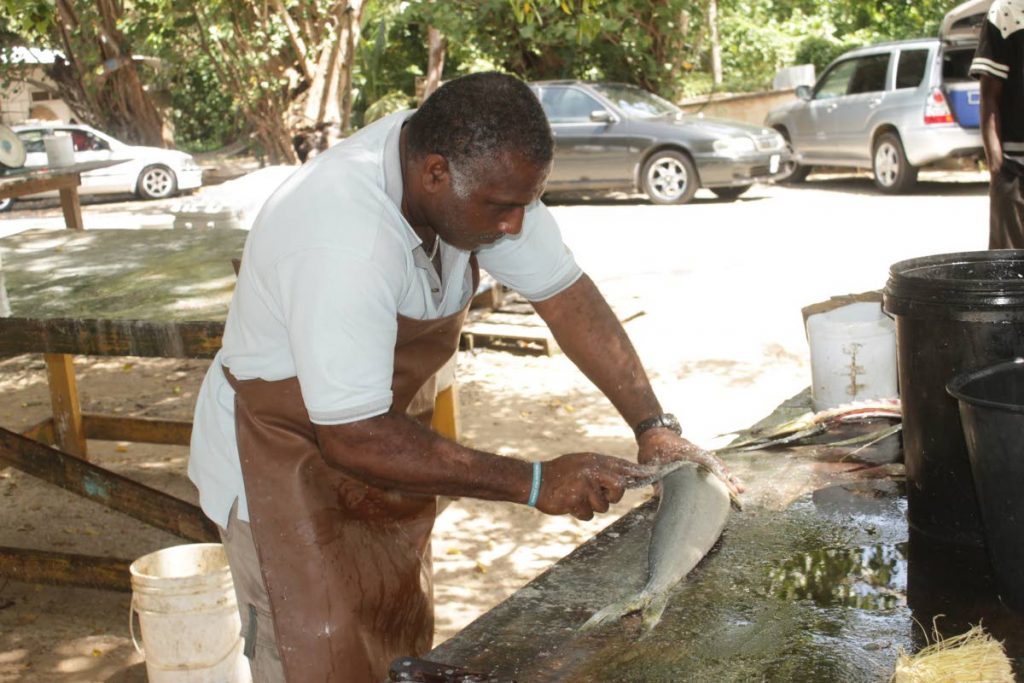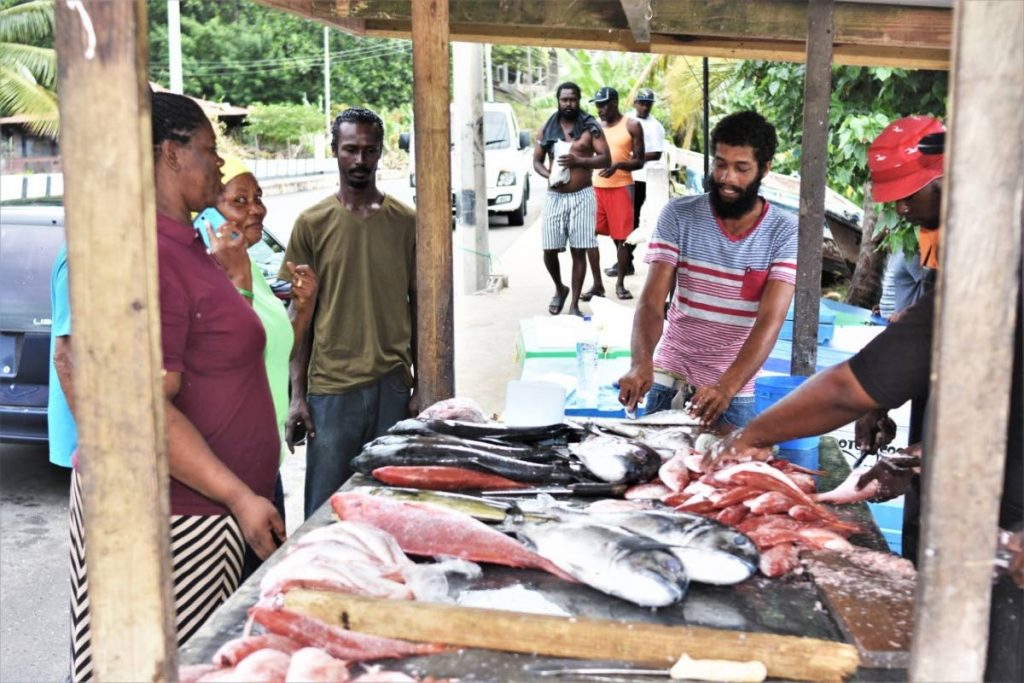Fisherfolk report decline in exports with ferry woes

Fishermen and fish processors are reporting a decline in exports of fish and fish products to Trinidad with the removal of the T&T Express from the seabridge on March 13.
They say the breakdown in the inter-island transport system, with only the cargo ferry, the Cabo Star operating, has severely affected sales for the lucrative Lenten and Easter period to the sister isle.
Vice President of the All Tobago Fisherfolk Association, Curtis Douglas, told Newsday Tobago that apart from problems with transporting fish to Trinidad, or with Trinidadians coming to Tobago to
buy fish to take back, fishermen are also having difficulties with bringing in fishing equipment.
“Normally we have a market for Easter where we would send fish to Trinidad because of the high demand for lent. The prices in Trinidad are $45 and $50 a pound and here we are selling it for $20-$25 a pound, so we usually take advantage of the Trinidad market.
“We have not seen that revenue from the Trinidad market as it used to be for two years now,” Douglas said.
“For Easter we would usually corn and smoke fish, send the products to Trinidad but this year we have a serious challenge, we are struggling to get this done. We don’t use the cargo ferry because of the length of time and we cannot use the plane, so we mostly used the ferry to transport the fish,” he said.
“No one can get here, Trinidadians do not come to Tobago buy fish and return on the plane,” he added, noting this loss of a market as well.
Douglas also said recent rough seas have caused some damages to fisherfolk’s boats and equipment and the lack of a fery is creating problems to get parts to Tobago.
“We would usually use the ferry to transport our materials but because of the ferry issues we cannot go get the parts to do the repairs. If we
can’t get our boats fixed, then we can’t go to sea and if we can’t go to sea, then we can’t catch fish. Our family, income and ultimately the businesses and people of Trinidad and Tobago are being affected,” he said.
“We cannot get the ropes; we can’t get the fibreglass … so it’s really causing a stir and a hard time for us. The next option we are looking at is driving our boats to Trinidad, catch a car to Port-of-Spain and organise our business and get some of our dealers to get our fishes off our hands,” he said.
Douglas estimated that Tobago’s fishermen would suffer thousands of dollars in losses between March 13 to March 22 – that date given for the return of the T&T Spirit to the seabridge.
“As a citizen, and a fisherman who is also involved in fish processing, I think someone should be charged for high treason. It’s over a year now we were promised a reliable inter-island transportation system and a new boat …If they can’t get the ferry service right, how can they get anything else in the country right?
“Someone needs to go. We need to set precedent and we need to set it now because they will continue to hurt the people of Tobago and they are hurting the fishermen. Imagine we have fish and we can’t get it off our hands,” he said.

Roy Jacob, Managing Director of Jacob's Fishing , a processing operation in Bon Accord, was more optimistic about the situation, saying that despite issues with the inter-island transportation system, they were manageable.
Jacob said he was exporting fish to Trinidad as the company utilises both the cargo and passenger ferries.
“I get some of my fish inTobago and some from Trinidad, but I never have a problem with getting fish coming on the boat from the long liners because usually they would put those fish in bins on the boat and we would collect them. It is only if the cargo boat doesn’t sail, then we would have an issue,” he said.
Jacob did admit though that sales were “down a bit, because “people were not coming to Tobago as often.”
He said he was now more focused on catering for the Tobago market, identifying another issue for slow exports - seismic research in Tobago being done by a Canadian company which he said has caused the quantity of fish to drastically decrease.
“The fish plant I have is not running as it should run, it’s just the fish that we get from Trinidad, we slice them and sell it to the Tobago supermarkets,” he said.
Vice President of the Scarborough Fisherfolk Association, fisherman Kerry Makoul said the ferry chaos was not significantly affecting most of the fishermen with the Association, who were more worried that fish was scarce around Tobago. He said fisherman who did supply the Trinidad market were affected by the problems with the ferry service, though.
“We not even catching fish, whatever little we get is to sell to the locals. I don’t study Trinidad market but right now if there is only the cargo boat, it will cause a lot of problems since we have some men who privately cater for the Trinidad market. I know one person cannot send his lobster to Trinidad anymore,” he said.
Claudette Nero, Owner of Corpson Fish Products Ltd, uses the Cabo Star to export fish to Trinidad to her customers there but she is concerned that visitors, who are also customers, cannot get to the island sinc ether eis not passenger ferry.
“If our customers cannot come, we would ship to them, there is a system in place to do that shipment. My major concerns is not about getting the product to the customer, it’s more about getting the tourist here,” she said.


Comments
"Fisherfolk report decline in exports with ferry woes"